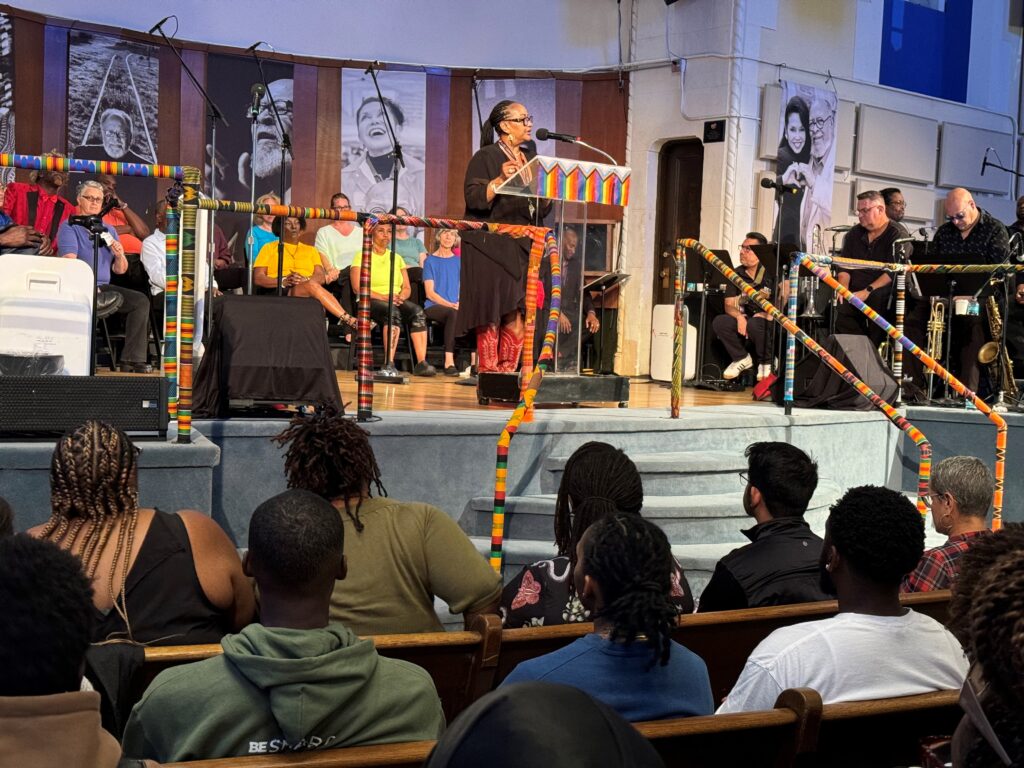
Glide Memorial Church (GMC) recently welcomed more than 80 Historically Black Colleges and Universities (HBCUs) Black and Brown students. We acknowledge and honor them as representatives of our present and future leaders and changemakers. We celebrated Black Excellence and discussed the harms done by systemic and institutional racism committed against Black people in the education system.
This historic collaboration between Glide Memorial Church and the San Francisco Human Rights Commission (HRC) was made possible by the San Francisco African American Reparations Committee (AARAC) and their recommendations for rectifying the historical harm caused to the African Community by chattel slavery and racist city government policies.
Director Sheryl Evans Davis appointed Cathy Meyer & Zach Manuel to co-organize the event with GMC’s Congregational Life & Community Engagement Manager, Freddy Martin & Pastor Marvin K. White.
It was a day of worship and community service, engagement, and tours of the TL. Our President and CEO, Dr. Gina Fromer, shared how education was her gateway out of poverty. When her mother urged her to “get your education so you can get out,” Dr. Gina initially misunderstood, thinking it meant escaping the neighborhood.
But what her mother emphasized was the need for schooling to overcome deprivation. “I’m here to say that I am one generation out of poverty, because of my education,” said Dr. Gina.
“We are going to continue to fight against injustice at the systems level. GLIDE works in partnership with Mayor Breed and supports her fantastic, bold vision to establish a satellite HBCU campus in San Francisco.”
The San Francisco Human Rights Commission is managing the summer program, by hosting more than 60 students from 20 different HBCUs. The students are enrolling in courses at the University of San Francisco and working in departments at the City and County of San Francisco.
Reflecting on the program’s significance, Dr. Sheryl Davis, Executive Director of the Human Rights Commission, noted, “Too much of the data has Black people over-represented in negative connotations. What we wanted to do is to celebrate the Black excellence that lives here. But when we are being truthful, being Black in San Francisco often means being invisible and being isolated.”
Reflecting on the program’s significance, Dr. Sheryl Davis, Executive Director of the Human Rights Commission, noted, “Too much of the data has Black people overrepresented in negative connotations. What we wanted to do is to celebrate the black excellence that lives here. But when we are being truthful, being Black in San Francisco often means being invisible and being isolated.”
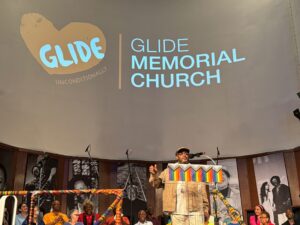
Freddy Martin, GLIDE’s Congregational Life and Community Engagement Manager, served on the HRC Reparations Advisory Committee and played a key role in connecting the HBCU students with GLIDE. He warmly welcomed the students, saying, “We love you. You are Black excellence. You are our Black futures, and we support you.”
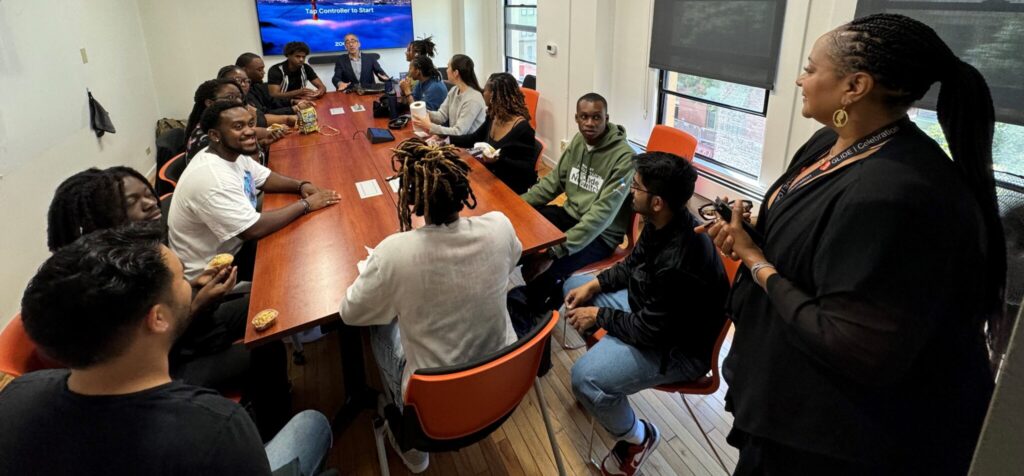
An additional cohort from Tuskegee University, convened by GLIDE’s Center for Social Justice, met with Dr. Gina and Rabbi Michael Lezak before attending celebration services. Following the service, the HBCU students volunteered at GLIDE, participated in a Tenderloin Walking Tour, and joined GLIDE at the Tenderloin Sunday Streets event. GLIDE plans to continue supporting these students throughout the summer.
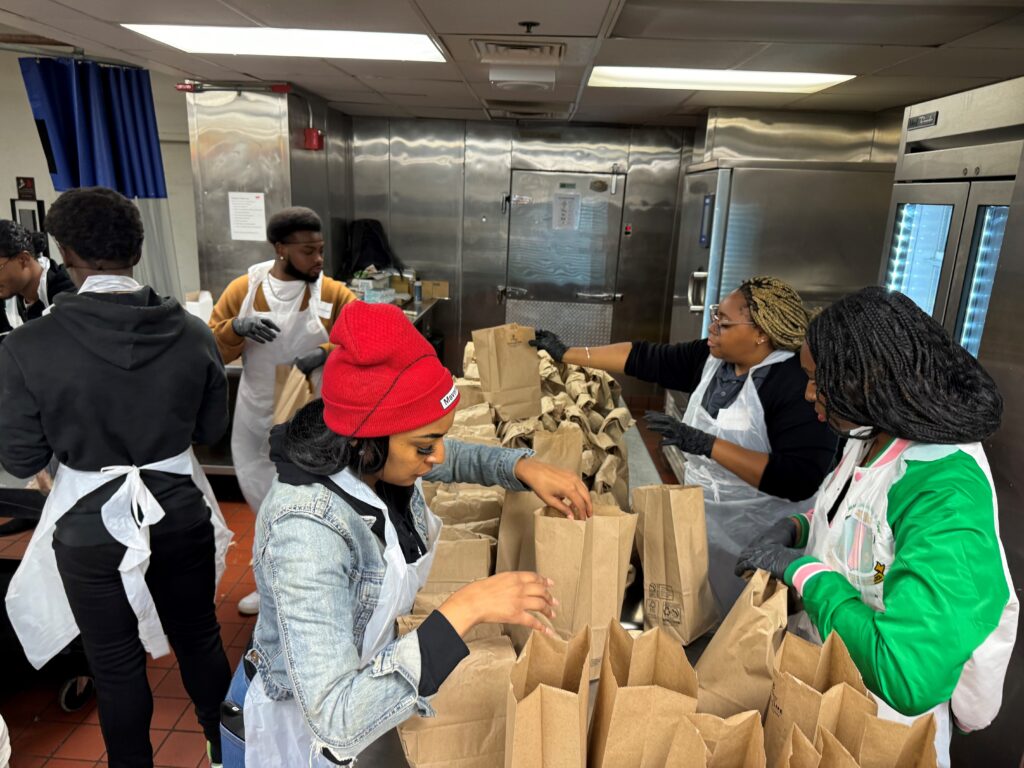
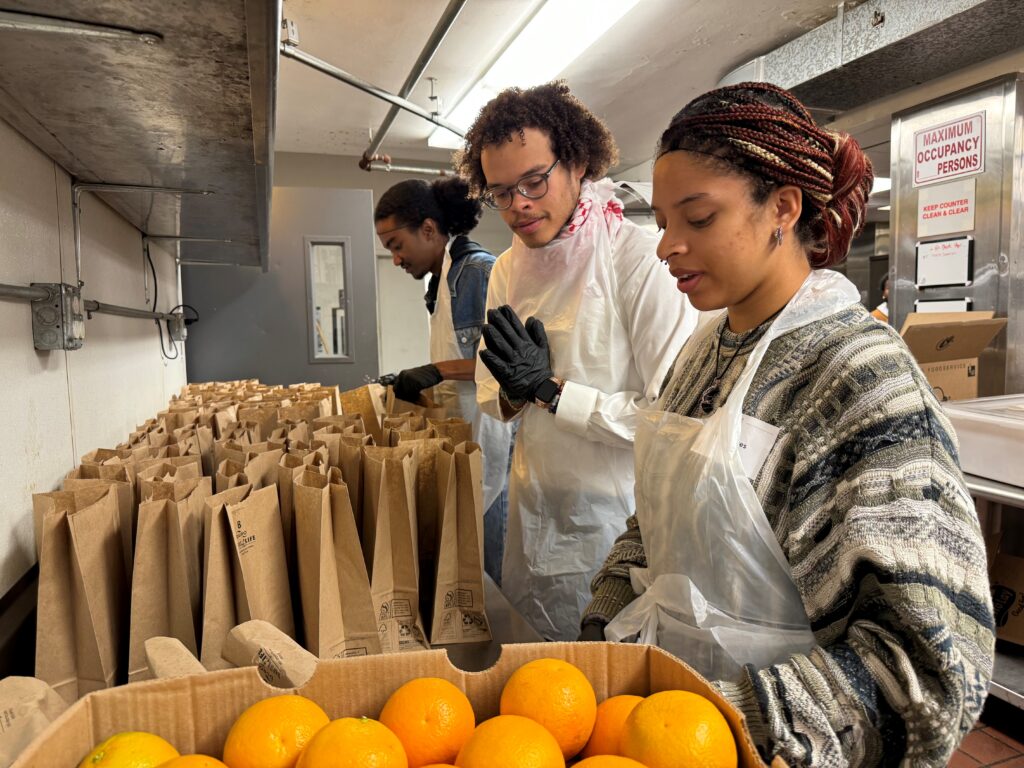
The Legacy and Impact of HBCUs
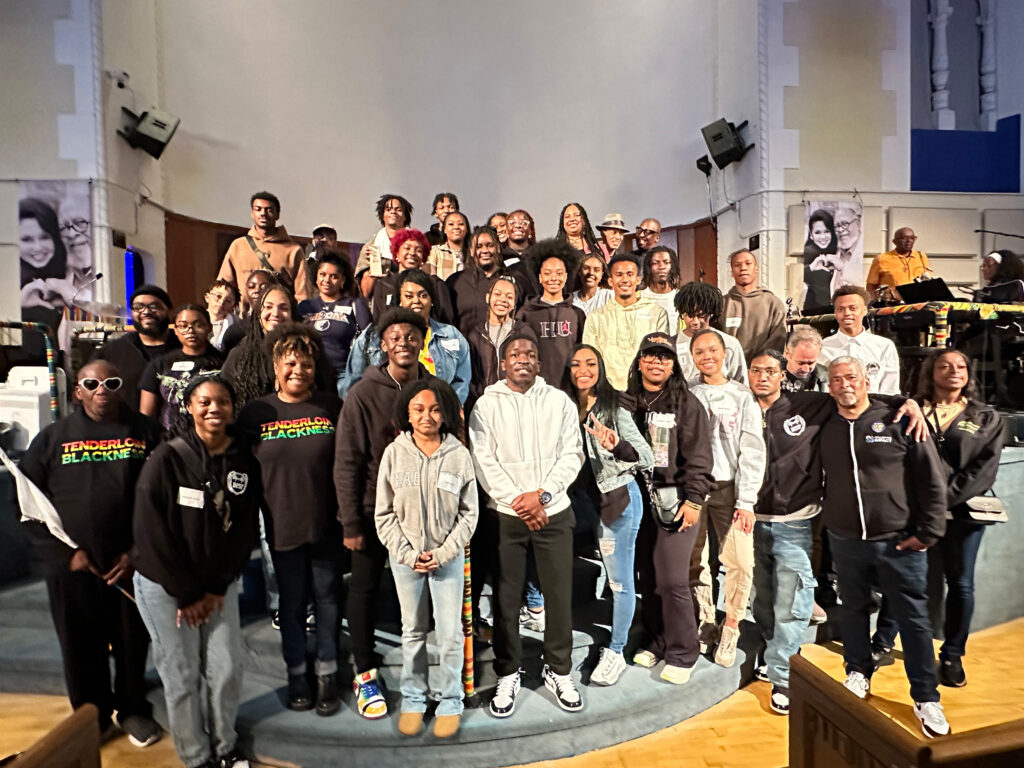
Historically, Black Colleges and Universities (HBCUs) have a rich history dating back to the early 19th century, with the founding of institutions such as Cheyney University of Pennsylvania in 1837 and Howard University in 1867.
These institutions provided African Americans with access to higher education during a time when they were largely excluded from other colleges and universities.
Today, HBCUs continue to play a vital role in higher education, producing nearly 20% of all African American graduates. They are also significant contributors to the socio-economic mobility of African Americans, with studies showing that HBCU graduates are more likely to move into higher income brackets compared to their peers from non-HBCUs.
Incorporating HBCUs into San Francisco’s educational landscape is a powerful step towards honoring their legacy and expanding their impact. By supporting HBCU students and alumni, San Francisco can help ensure that the transformative power of education reaches even more individuals, paving the way for future generations to rise out of poverty and achieve their full potential.
Sources
- U.S. Department of Education, National Center for Education Statistics.
- “HBCUs Make America Strong: The Positive Economic Impact of Historically Black Colleges and Universities,” UNCF.